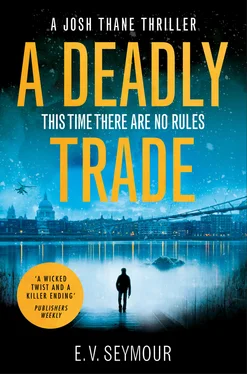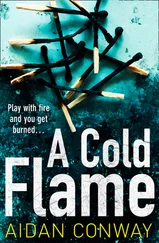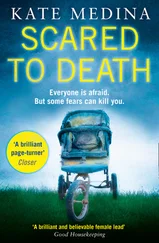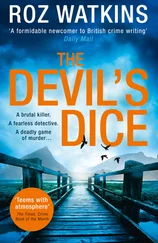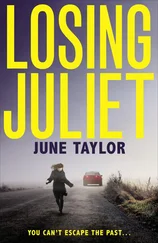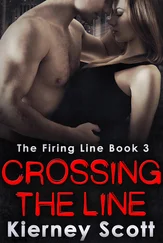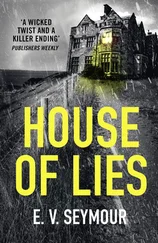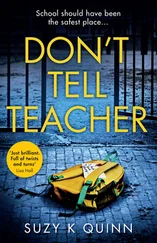It was so unexpected, so out of key with the situation, my mouth dried as though I’d swallowed coffee grinds. Stranger still, the quiet desperation of the lyrics coupled with the singsong melody awoke sleeping and painful memories of my mother. At that moment it felt as if her ghost were right beside me. But this was not my mother’s voice, not even a woman’s.
The singing stopped. So did the footsteps. I held my breath. I could almost hear the brain of the person less than a metre away making the calculations: door open, rug askew, safe open, trouble .
The light went on. On reflex, my hands flew up, each end of the cord coiled around fists prepared to viper-strike. Raw adrenalin spurted through my veins as the figure shambled into the room. It gave me a couple of seconds to observe the back of my quarry: male, around five nine, a couple of inches shorter than me, wearing a denim jacket, skinny jeans hanging low and exposing the top of the boxers beneath, trainers. I lunged. He turned. Christ.
Pale blue eyes stared out of a long-jawed and heavy-lidded face that had only recently made the transition to manhood. His hair was a mess of bleached blonde over brown. In that split-second I recognised that he was his mother’s son.
He gaped, managed to eject one word. ‘What?’
Instinct told me to kill him. No pointing fingers. No witness. No loose ends. I took a single, silent step forward.
His eyes were wide now, pained, the knuckles on his clenched hands white and shiny. He was probably working out that his mother was either dead or in mortal danger. Suddenly all the dusty years between the boy I was and the man I am now faded away. It was as if the lad had grabbed hold of my sleeve and, against my will, yanked me back to a darker and unholy time. Memories of old grief, misery, rage and helplessness, the seeds for transforming me from an ordinary teenager into a professional killer, swamped me.
‘Who sent you?’ He hissed.
I blinked, confused, the question odd in the context.
‘Are you going to kill me?’ Sweat beaded his top lip. His wild eyes flicked from me to the open door and back again.
My answer should have been yes.
I fled. Feet punching the stairs, the floor felt on fire, the air around me sucked dry of oxygen. I exited out of the back door the same way that I’d broken in, and tore alongside the fence at the rear, scaling a wall, landing on the other side, feet square. Not too many people about at that time of the morning. Even if there were I’m not sure I’d have paid them attention. The boy had knocked me way off course.
I was more than baffled by my own incompetence. How could I have missed something so fundamental? I did not make mistakes. I was unaccustomed to failure. I did the homework. As the Americans say, I did the math. Except, on this damn job, I hadn’t. Too little time and paid too much money. Greed had made me lazy.
Chill air brought me briefly back to my senses. I needed to get off the streets. I needed cash. Any attempt to access one of my numerous accounts too risky because it would tie me to a location.
I considered my options, which right that moment seemed limited. Truth was, I’d never found myself in this situation before.
It was still dark. Somewhere a dog howled. Shoulders back, I pushed my hands deep into my pockets, affecting a confident stride. No more than five minutes to the underground station, it would allow the wildness to pass and give me time to think. Inexorably, my thoughts returned to the dead woman.
The target, Dr Mary Wilding, a scientist based at Imperial College, London, had crossed up a crime lord. Not so bizarre as it sounds. Fake pharmaceuticals are hot big business, product piracy a prospering market. Without scientists there would be no drugs trade. Rumour had it that Wilding had been paid an exceptional amount of loot and reneged on a deal. My employer clearly wanted what he’d paid for. As for the hard drive, I had no idea what was on it. Not my business. But it was my business to know that Wilding had a son who lived in the house with her. I’d truly screwed up on that score and, if word got out, not only would I be finished, I’d be a dead man. The realisation that I’d committed professional suicide punched me hard in the gut. Whatever could be said about my existence, it beat to its own sick and twisted rhythm. I was used to living out of a suitcase, on the run, stakes high, as if each day were my last. What I’d do if I didn’t do this I had no idea.
What now?
I strode into the underground at Ealing Broadway. It was two minutes past five in the morning. Conscious of close circuit television cameras, I pulled down my cap to conceal my face, and calmed myself that for CCTV to be effective the cameras need to be positioned at the right angle, most CCTV is recorded over every four days so there is a one in four chance the film will be wiped before it is taken out and studied and, even if an image is captured, it still needs to be identified. A lot of film is grainy, of poor quality and indecipherable. Staring at reels of film hour upon hour will send even the most conscientious viewer into snooze-time. I wasn’t really consoled. I’m usually the hunter not the hunted.
Boarding a district line train, I hunkered down in the compartment and glanced around me. My only companions at that hour were solitary, desolate figures wrapped up against the cold and dark, heads down, the kind of people who were scraping by and clinging on by their fingernails, who bust their balls for nothing and knew it was all for nothing.
Like a disorientated homing pigeon, I stumbled out after a couple of stops. Under normal circumstances I’d be covering my tracks and making the all-important call to Wes. I did neither. The boy had seen to that. That I’d let him live when I could so easily have killed him meant that I was unmasked, no longer invisible, that I could no longer hide, not even from myself. From now on it would be like walking down the street stark bollock-naked.
Keen to go to ground, I turned a corner, my eye automatically clocking a café and dossers’ establishment, all white and red plastic furnishings. A wall of heat engulfed me as if I’d walked into a bank in Saudi with the air-conditioning bust. Rammed with men who’d slept rough the night before, their clothes stained, gnarled hands clutching mugs of tea, grease and sweat hung tenaciously in the air. Among the vagabond throng a number of unfortunate Eastern Europeans with beaten expressions. I didn’t exactly fit in, but it was the best place to go to avoid the attention I had no wish to attract.
I ordered tea, builder’s brew, the type you can stand a spade in. When I spoke my voice, so rarely used, felt strangely detached from the rest of me. Low in pitch and without obvious accent, it certainly contained no trace of my middle-class Gloucestershire roots.
‘You, alright, mate?’
I turned towards the man serving, the one who asked the question. He had a fleshy face ripe with folds and creases. All I wanted was a mug of tea. I did not welcome chat. I did not want be his mate. I nodded slowly once. His tongue flicked out, touched the side of his mouth, nervous. As he poured the beverage from an urn the size of a household boiler, I glanced at my reflection in the mirrored glass behind the counter expecting a drastic change in my appearance, some giveaway expression in the eyes betraying the disarray in my head, but I looked the same: cropped dark hair, blue eyes, wide nose that had once been broken in a game of rugby and reset, high Slavic cheekbones care of some genetic kink down my father’s line.
Counting out the exact change, I paid and took the mug to a corner table with a good visual on the door. Wes would be wondering why I hadn’t called. That got me thinking. Wes had insisted that Wilding was unmarried and childless. Had Wes been aware of this crucial piece of information but for darker reasons withheld it from me? Did he presume that any inconveniences would be ruthlessly taken care of? Knowing Wes, he would describe it as ‘collateral damage.’ This did not alter the simple fact that he had a fucking duty to tell me.
Читать дальше
